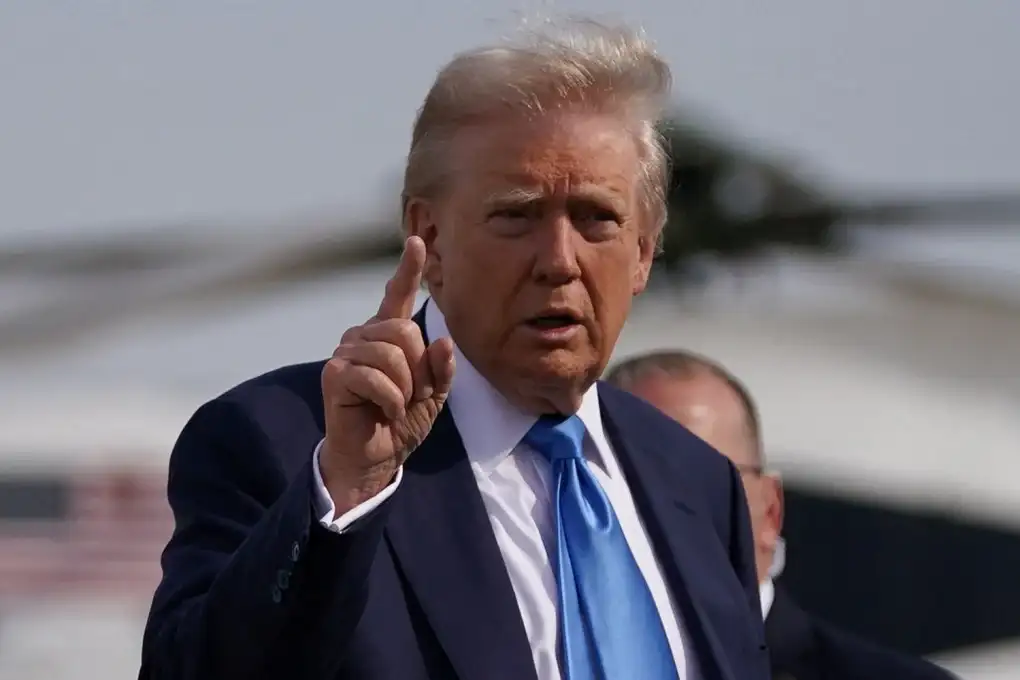Trump Imposes 100% Tariff on Foreign Films, Cites Crisis in U.S. Movie Industry
In a dramatic move that has sparked global debate, former U.S. President Donald Trump announced a 100% tariff on all films made outside the United States. Declaring the American film industry to be in deep decline, Trump claimed the new policy is aimed at protecting domestic studios and reviving the country’s cultural influence.

The announcement came via a post on Truth Social, where Trump said he had directed the Department of Commerce and the U.S. Trade Representative to begin enforcing the tariffs immediately. He insisted the measure was essential for national security and economic recovery.
“The Movie Industry in America is DYING a very fast death,” Trump wrote. “We are bringing back film production to American soil. Make Movies in America Again!”
A Cultural and Economic Argument
According to Trump, many U.S. studios are being drawn abroad by attractive tax breaks and subsidies offered by foreign governments. He argued that this exodus not only weakens the American economy but also threatens national identity by promoting foreign narratives over American ones.
The former president framed foreign-produced films as potential vehicles of propaganda and cultural erosion. “Other countries are using film to shape global opinion in ways that don’t reflect American values,” he said.
This move fits into Trump’s broader “America First” agenda, which prioritizes domestic industry and often uses tariffs as a tool to combat perceived economic imbalances.
Shockwaves Across the Global Film Industry
The response from the international entertainment sector has been swift and critical. Countries like Australia, the UK, and Canada—home to numerous Hollywood productions—have voiced concern about the economic impact.
In Australia’s Gold Coast, a region that has hosted major productions like Elvis and Godzilla x Kong, industry insiders described the decision as potentially devastating. Since 2015, international productions have brought billions of dollars into Australia’s economy and created thousands of local jobs.
“This is economic sabotage,” said one Australian producer. “The ripple effects could be massive—not just for us, but for Hollywood too.”
European film industry leaders also raised alarms, suggesting that the tariff could spark retaliatory measures. Some fear a broader cultural and trade rift if the policy is fully implemented.
Mixed Reactions in Hollywood
Within the U.S., the announcement has divided opinion. Some see it as a bold step toward revitalizing American film production, while others argue it may hurt consumers and the industry itself.
Trump has enlisted well-known conservative actors like Jon Voight, Sylvester Stallone, and Mel Gibson to champion the initiative. He hopes their involvement will help steer more film projects back to U.S. studios.
But not everyone in Hollywood is on board. Randy Greenberg, a veteran producer, warned that higher costs associated with the tariffs could result in increased ticket prices, potentially driving viewers away from theaters at a time when streaming already dominates.
“If movie prices go up, people will just stay home. It’s not a smart move if the goal is to get people back into cinemas,” Greenberg said.
Others question whether U.S. studios will be able to absorb the increased costs or whether they will shift expenses onto consumers and smaller distributors.
Unclear Scope and Legal Hurdles
One of the biggest uncertainties surrounding the policy is how it will be applied. Will the tariffs affect streaming services like Netflix, Amazon Prime, or Apple TV? These platforms frequently feature international content and are a major part of the modern viewing experience.
Legal experts are also questioning the constitutional basis for such a sweeping policy. Tariffs on physical goods like steel and electronics are one thing—but imposing a tax on intellectual property, like films, could face legal challenges. It’s possible that Congress would need to pass legislation redefining the nature of tariffable content before the policy could take full effect.
Moreover, there is concern over how this decision fits into international trade agreements. Countries affected by the new tariffs may appeal to the World Trade Organization or respond with tariffs of their own.
A History of Protectionism
This isn’t the first time Trump has used tariffs to push domestic economic agendas. During his presidency, he implemented duties on goods ranging from steel and aluminum to solar panels, often justifying them on the grounds of national security.
The foreign film tariff is simply the latest example of Trump’s broader protectionist philosophy. In the past, similar actions have led to trade disputes, including retaliation from China and the European Union.
Analysts suggest that while the film tariff may be symbolic, it reflects a real shift in U.S. trade and cultural policy—a shift that places greater emphasis on national self-reliance and skepticism of globalization.
What Comes Next?
The film industry, both in the U.S. and abroad, is now bracing for what could be a period of significant upheaval. Some studios may reconsider foreign shoots or adjust release strategies, while international partners may rethink collaborations with U.S. companies.
Meanwhile, streaming giants may need to reassess how they handle licensing and distribution of foreign content within the U.S.
Whether this policy will ultimately benefit the American film industry or isolate it from the rest of the world remains to be seen. What’s certain is that Trump’s decision has introduced a major new variable into the already complex world of global cinema.






